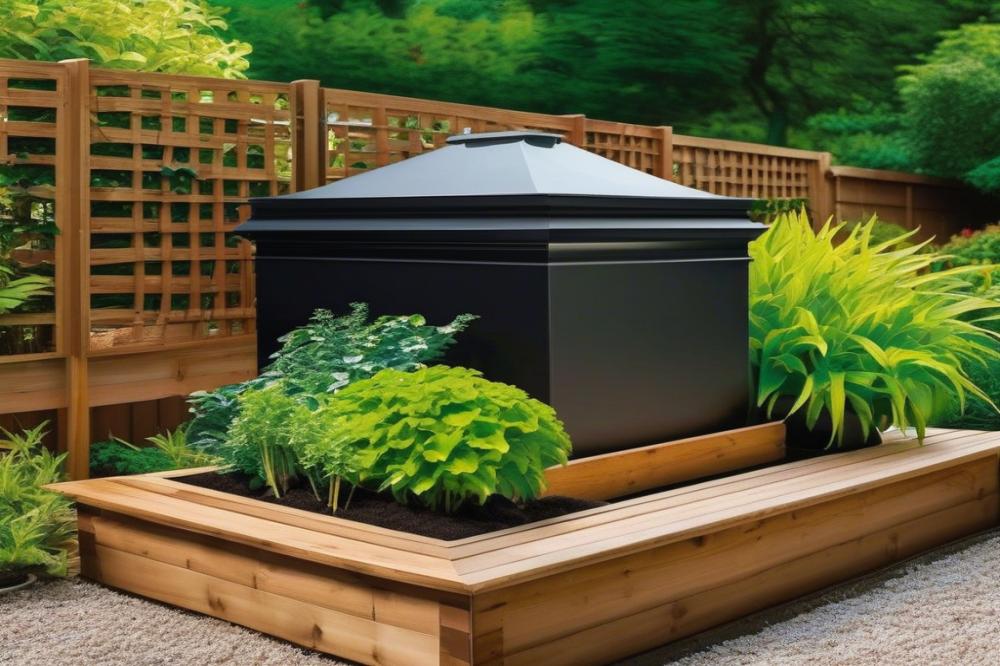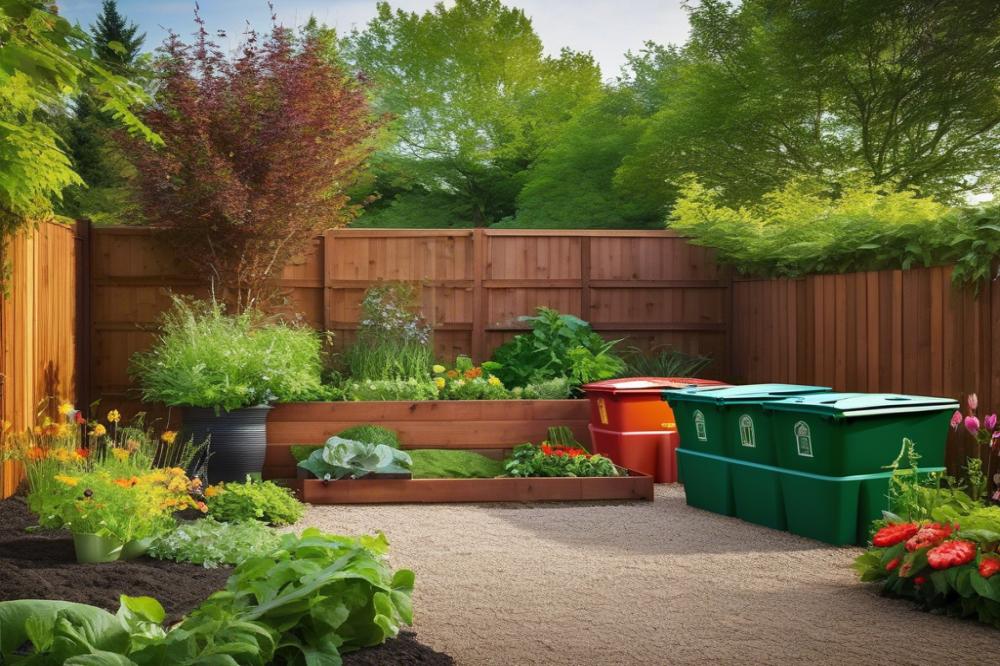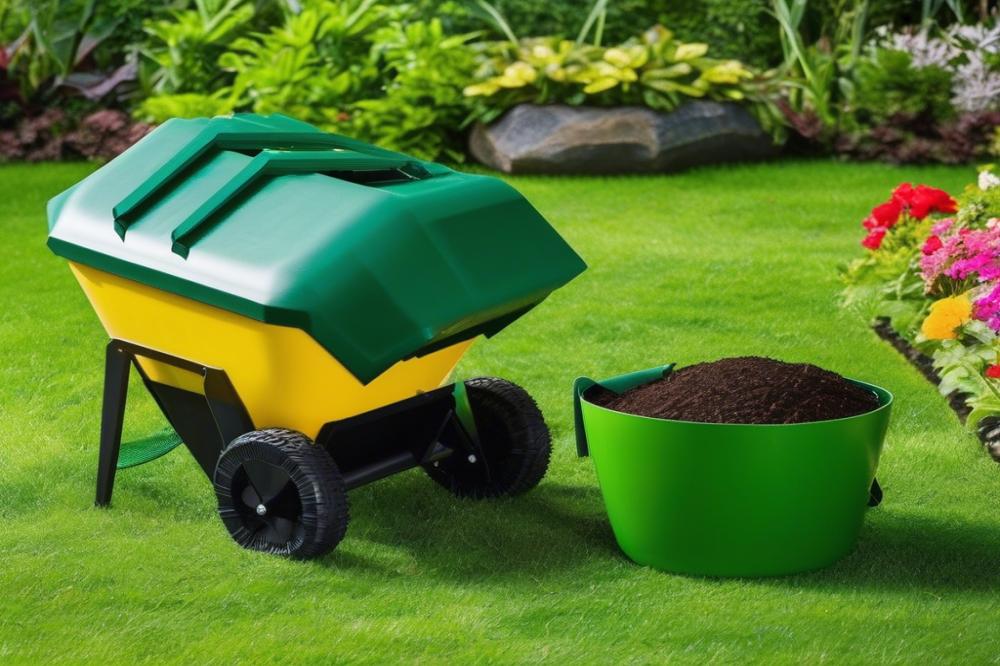Importance of composting in composting-bins-and-tumblers”>large-scale gardens
In any large-scale garden, composting plays a vital role. It helps convert organic waste into enriching soil. Many gardeners want to reduce their impact on the environment. Composting is an excellent way to achieve eco-friendly gardening. By using biodegradable materials, you can create your own natural fertilizer.
Benefits of Using composting bins
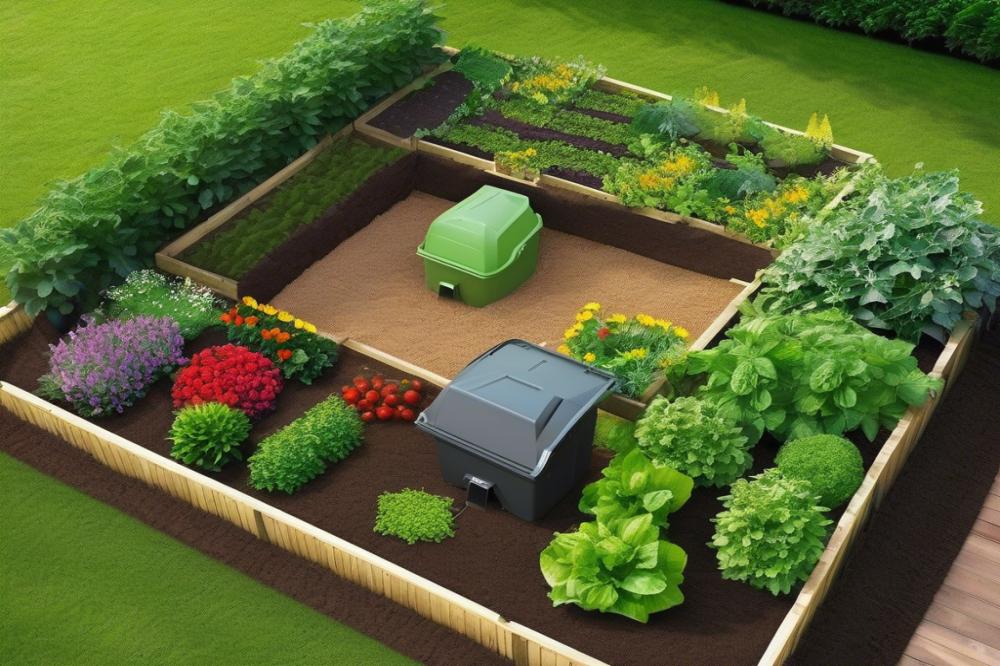

composting bins facilitate the composting process, making it easier to turn yard waste into valuable resources. They not only streamline the collection of scraps but also help maintain proper aeration and moisture levels. This enhances the decomposition rate. As a result, you get nutrient-rich garden fertilizer that promotes healthy plant growth. Choosing the right composting systems can make a noticeable difference.
Overview of the Article
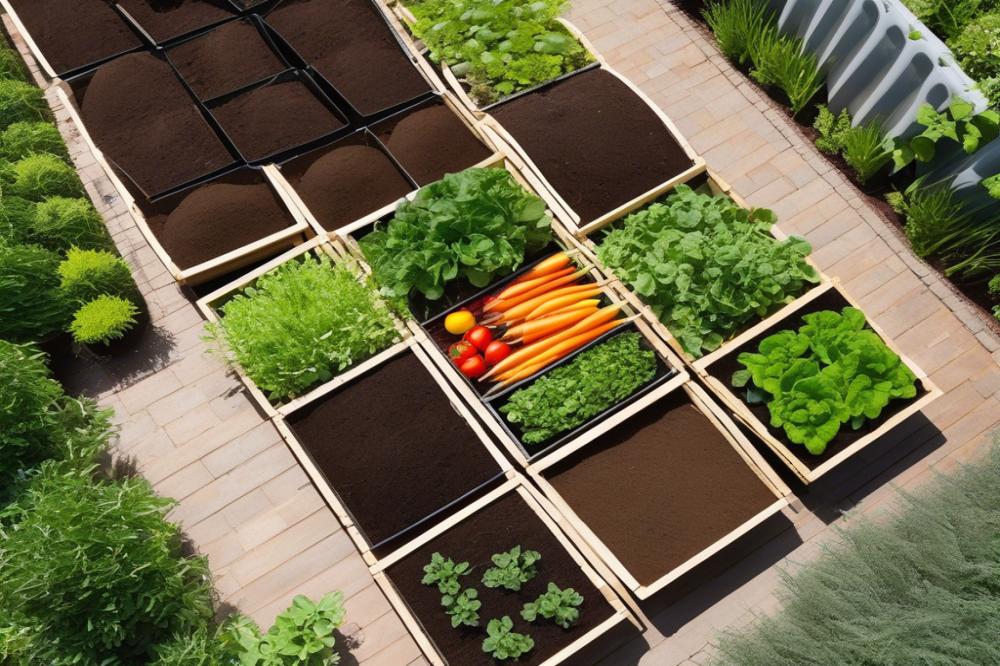

This article will explore the best composting bins suited for large-scale gardens. You’ll learn about various options, their unique features, and how to select the one that fits your gardening needs. Each type offers advantages, so it’s important to find what works best for you. Whether you’re just starting out or are an experienced gardener, the right setup can transform the way you manage organic waste.
Understanding Composting Bins
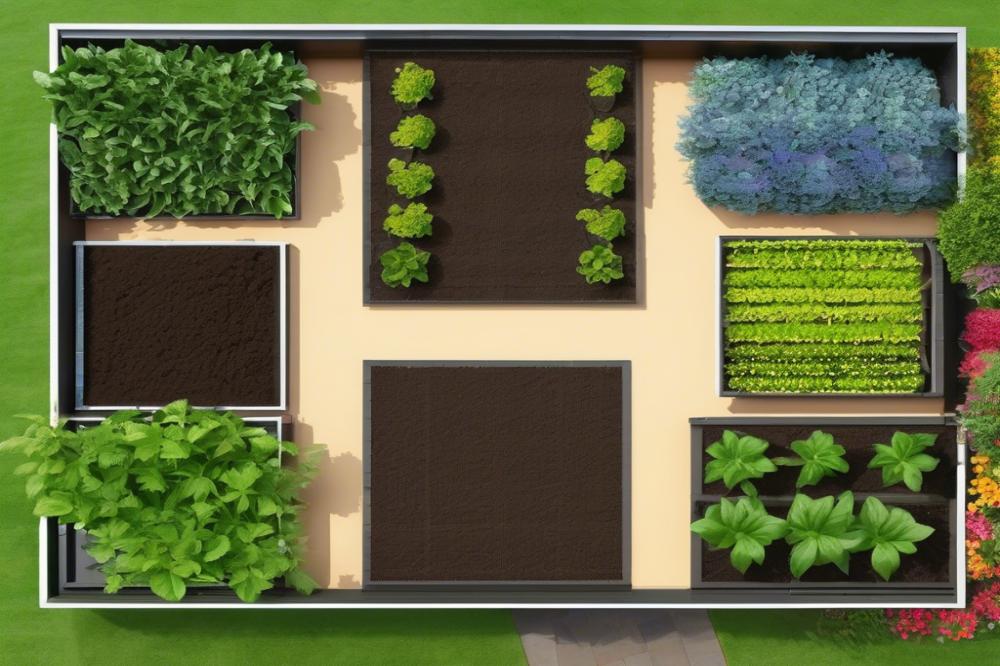

Composting bins serve an essential purpose in sustainable gardening. They are designed to collect and transform organic waste into nutrient-rich soil. This process not only reduces waste but also creates garden fertilizer that helps plants thrive.
Types of Composting Systems Available
A variety of composting systems exist to cater to different gardening needs. Some of the most popular choices include outdoor compost bins and compost tumblers. Each type has its own set of features aimed at making the composting process easier and more efficient.
Outdoor compost bins tend to be stationary and hold a larger volume of yard waste. They can accommodate a range of biodegradable materials like fruit scraps, grass clippings, and leaves. However, they require regular turning or mixing to break down the waste properly.
On the other hand, compost tumblers are unique in design. They are elevated off the ground and can be rotated, simplifying the mixing of compost material. This feature often speeds up the breakdown of organic material and makes maintenance much less of a chore.
Differences Between Compost Bins and Compost Tumblers
Understanding the differences between these systems is crucial. Compost bins generally require more physical labor to ensure the composting process is effective. Users must manually aerate the pile to boost activity within it. This method can be satisfying but also demands more effort.
Compost tumblers offer a more hands-off approach. After adding waste, turning the tumbler mixes contents easily. This system leads to faster decomposition while also keeping pests at bay, which is a major plus for gardeners.
When choosing between the two, consider your available space and personal preferences. An ergonomic compost tumbler might be better for gardeners seeking convenience, whereas a traditional composter may suit those willing to invest more time. Regardless of choice, both systems promote eco-friendly gardening habits and sustainable practices.
Choosing the Right Composting Bin for Large-Scale Gardens
When selecting a composting bin for large-scale gardens, size is crucial. Your needs will depend on the volume of organic waste your garden produces. A small bin may not keep up with the load, while a larger option can handle more yard waste at once.
Material matters too. Compost bins come in various materials like plastic, wood, and metal. Some options last longer and resist decay better than others. A sturdy outdoor compost bin can stand up to the elements while helping to break down biodegradable materials effectively.
The design of the composting systems also plays a role. For example, compost tumblers can speed up the composting process. They aerate the debris as you turn them, which can be beneficial for faster results. Consider how much effort you’re willing to invest in maintaining your compost.
Evaluating capacity is key when you want to manage organic waste efficiently. Determine how much kitchen scraps and yard debris you generate each week. This analysis helps you choose a bin that can keep pace with your garden’s output.
Durability is another important factor. You want a bin that lasts, so consider options that boast robust construction. The ease of use shouldn’t be overlooked either. If it’s cumbersome or complicated, you might find it hard to stick with your composting plan.
Remember, picking the right composting bin contributes to eco-friendly gardening. It offers benefits beyond just reducing waste; it creates rich garden fertilizer that helps your plants thrive. With the right choice, you can enhance your sustainable gardening efforts and turn organic materials into valuable resources for your garden.
Top Composting Bins for Large-Scale Gardens
When it comes to turning organic waste into rich garden fertilizer, having the right equipment matters. Below, we explore some of the best options available for large-scale gardens. These composting systems help gardeners efficiently recycle yard waste and biodegradable materials.
1. The Envirocycle Composting Tumbler
This compost tumbler is designed for durability and ease of use. It includes a unique time-saving feature, the ability to rotate the drum easily. The rolling action mixes the composting materials thoroughly, speeding up the composting process. Users love that it can hold a generous amount of organic waste, making it suitable for larger gardens.
2. The Rubbermaid Commercial Products Brute Compost Bin
Sturdy and reliable, this outdoor compost bin is made from high-quality plastic. It can withstand harsh weather conditions without deteriorating. Ventilation holes promote airflow, which is essential for aerobic composting. Many gardeners appreciate its straightforward assembly and large capacity.
3. The Compost Wizard Jr. Compost Tumbler
This tumbler is compact yet surprisingly spacious. It’s perfect for those who want an efficient composting experience without taking up too much space. A convenient design allows easy turning, enhancing the composting process. Users can appreciate a built-in stand that elevates the bin for better aeration.
4. The FCMP Outdoor IM4000 Tumbling Composter
This tumbler is designed to provide excellent insulation for your compost pile. The dual chamber feature allows for continuous composting. Each side can be filled while the other side matures. Gardeners benefit from a quick turnaround, producing quality garden fertilizer in as little as two weeks.
5. The Garden Compost Bin by Ecogardener
An affordable option, this outdoor compost bin is made from recycled materials. It boasts a simple setup process and encourages aeration, which is necessary for effective composting. Many users love its eco-friendly design and how it fits seamlessly into different garden styles.
Comparison of Compost Bins and Compost Tumblers
Compost bins and compost tumblers each have their advantages. Bins often have larger capacities and can handle more organic waste at once. However, they usually require more manual turning. Tumblers, on the other hand, are easier to turn, which facilitates faster breakdown of materials. They also tend to heat up quicker, promoting a more efficient composting process. Your choice will ultimately depend on your gardening needs and space available.
Optimizing the Composting Process
When you’re dealing with large volumes of organic waste, best practices make all the difference. Start by balancing green materials, like grass clippings and kitchen scraps, with brown materials, such as dried leaves and cardboard. This mix helps speed up the composting process and creates nutrient-rich garden fertilizer.
Managing yard waste and biodegradable materials doesn’t have to be overwhelming. Collecting all green waste together simplifies the process. Shredding larger items, like branches or cardboard, quickens decomposition. Think about using an outdoor compost bin or a compost tumbler for efficiency.
Tips for Maintaining an Efficient Composting System
Maintaining your compost pile can be straightforward. Regularly turning your compost helps aerate it, which is essential for breakdown. Monitoring moisture levels is vital, too; it should feel like a damp sponge but not overly wet. If it gets dry, sprinkle water. Conversely, if it’s too soggy, add more brown materials.
Keep an eye on the temperature of your composting system. The right heat can significantly speed decomposition. Using a compost thermometer gives you an idea of how your pile is doing. If it cools down, you might need to add more nitrogen-rich materials. Balancing carbon and nitrogen is key to a healthy compost.
Remember to layer your compost effectively. Start with a base of coarse materials to allow airflow. Every layer counts, and mixing in a variety of organic waste promotes a faster breakdown. Incorporating kitchen scraps along with yard waste makes the process more effective, creating a rich end product for your garden.
Utilizing Compost as Garden Fertilizer
Using finished compost in large gardens can make a significant difference in plant health and growth. After the composting process is complete, it turns into a rich, dark product that is teeming with beneficial nutrients. Spread compost around your plants or mix it into the soil before planting. This method provides essential nutrients directly to the root system, giving your plants a strong start.
Benefits of Using Compost in Sustainable Gardening
Compost serves as a great substitute for chemical fertilizers. It enriches the soil and promotes vibrant plant growth without the harmful impact on the environment. By using biodegradable materials and recycling organic waste like food scraps and yard waste, you are contributing to eco-friendly gardening practices that befit the planet. Moreover, compost helps retain moisture in the soil, reducing the need for frequent watering.
Improving Soil Health and Plant Growth
Healthy soil is the foundation of a thriving garden. Compost enhances soil structure, allowing for better air circulation and drainage. By incorporating compost into your gardening routines, you encourage beneficial microorganisms to flourish. These tiny helpers play a vital role in breaking down nutrients that plants can absorb. Remember, healthy, happy plants lead to a bountiful harvest!
Final Thoughts on Composting for Large-Scale Gardens
Benefits of Composting
Using a composting bin in a large-scale garden brings many advantages. It transforms organic waste into nutrient-rich soil. This process not only helps plants grow healthier but also reduces the need for chemical fertilizers. Creating a sustainable gardening system can be fulfilling and beneficial for the environment.
Embracing Eco-Friendly Practices
Adopting eco-friendly gardening practices is essential for a healthier planet. Composting is a practical way to manage garden scraps. Consider how much waste ends up in landfills. Every time you recycle that waste into compost, you’re making a positive impact. It’s a simple but powerful choice for everyone.
On Sustainable Gardening
Sustainable gardening goes hand in hand with effective composting. By recycling organic materials, you create a continuous cycle of growth and nourishment. A well-maintained composting system makes a real difference. Healthy soil contributes to robust plants that are more resilient to pests and diseases.
In closing, investing in a proper composting system is not just a smart move for your garden; it’s a step towards a greener future. Embrace the opportunity to better your gardening and the planet. Your commitment to sustainable practices can inspire others. Let’s all grow together in harmony with nature.

